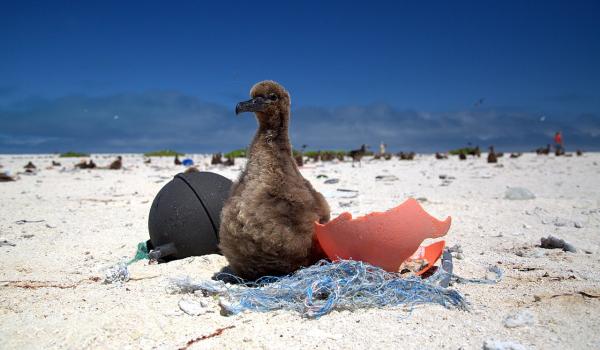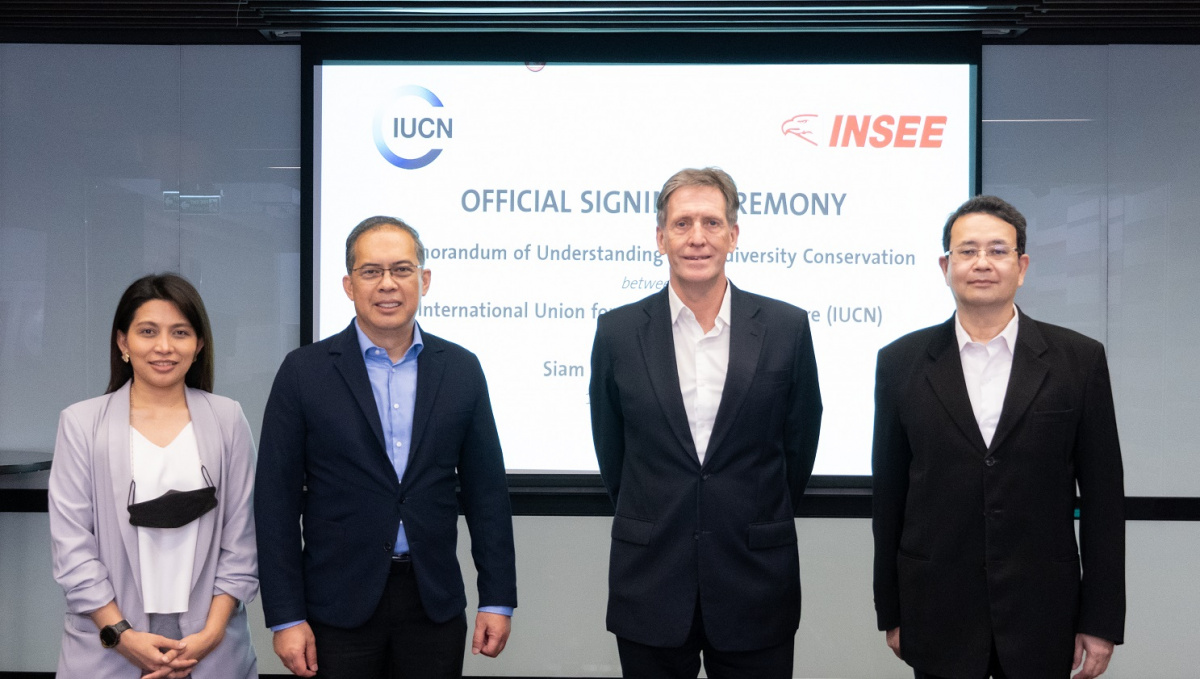IUCN, Environment Justice Foundation and partners discuss ways to reduce impacts of ghost fishing gear
On 13 February 2020, under its Marine Plastics and Coastal Communities (MARPLASTICCs) Project, IUCN in collaboration with the Environment Justice Foundation (EJF) conducted the Thailand Partners Workshop on Reducing Abundance and Impacts of Ghost Fishing Gear at the Research and Innovation for Sustainability Center (RISC) Bangkok. Sixty participants from government, non-government organisations, and academic institutions who are working on the collection and recycling of ghost fishing gears participated the activity. The workshop is considered a first step in the development of a work plan for collaborative activities to reduce impacts of ghost fishing gear in marine ecosystems.
“This workshop will serve as a venue to talk about the Thailand context on the issue of ghost fishing gear. We hope that through this activity, we will be able to identify who is working on what and collectively identify innovative solutions, areas for research, identify partners on the retrieval of gear, opportunities for education and communications work.” said Maeve Nigthingale, Senior Programme Officer, Coastal and Marine, IUCN Asia- Natural Resources Group.
The workshop included plenary and workshop sessions. Presentations from Department of Marine and Coastal Resources (DMCR), EJF, Mahidol University, Jan and Oscar Foundation and GIZ presented insights on the current situation of plastic pollution in Thailand as well as ongoing projects to reduce it.
According to DMCR, over 300 aquatic animals die every year because of discarded plastics in seas and fishing gear is responsible for 24% of threat to marine life in the country.
The Net Free Seas Project, which works to retrieve lost fishing gear and recycle into raw materials that can be used to make goods like sports equipment, shoes, carpet, car parts, and bags, was presented by EJF. Mahidol University presented on the negative impacts of tourism on the health of coral reefs and shared options on how this issue should be addressed through a shared responsibility among tourists and communities. Jan and Oscar Foundation presented their circular economy project, which aims to address marine plastic pollution in Ranong province. GIZ presented their “Rethinking Plastics” project and discussed opportunities for collaborative work along reducing plastic pollution.
Participants were then divided into four groups to work on the following areas related to ghost fishing gear: policy, innovations, public awareness and education, and research.
The workshop identified gaps in knowledge, such as the lack of information about the 30 types of fishing gear and their life cycles. Actions identified include conducting research on gear types and their life cycles, working with the local communities to conduct marine debris cleaning and creation of a divers’ group to collect fishing gear and acknowledge them for their efforts. Participants also identified that raising awareness of local community members on preventing loss of fishing gear will be a significant step to address the issue.
Ghost fishing gear or collectively known as Abandoned, Lost, and Discarded Fishing Gear (ALDFG) is a problem that is increasingly of concern. According to the Food and Agriculture Organization (FAO), ghost fishing gear accounts to 10% or 16,000 tonnes of marine debris found in the world’s ocean, which impacts marine life and ecosystems.
“With more than 10,000 fishing fleets present in the waters of Thailand, we can imagine how many fishing nets are lost in our seas. These ghost gear have been putting so much pressure on our marine ecosystems and species.” said Dominic Thomson, Project Manager and Senior Campaigner for Southeast Asia, Environment Justice Foundation (EJF).
The next step of the workshop focuses on creating a circular economy project for fishing gear in collaboration with divers’ group, fishing communities, universities, nylon recyclers and policy makers. IUCN will share the report of the workshop to the participants and arrange follow up meetings on each topic proposed. With the support of EJF, IUCN also plans to establish a network of Fishing Debris actors to address issues and impacts of ghost fishing gear in Thailand.
About MARPLASTICCS
Plastic pollution has become a global problem threatening our environment, health and economies. If we do not act now, the problem will only get worse. Through the Marine Plastics and Coastal Communities (MARPLASTICCs) project, funded by the Swedish International Development Cooperation Agency (Sida), IUCN is working closely with governments, industries and society in Africa and Asia to reduce and control plastic pollution.







